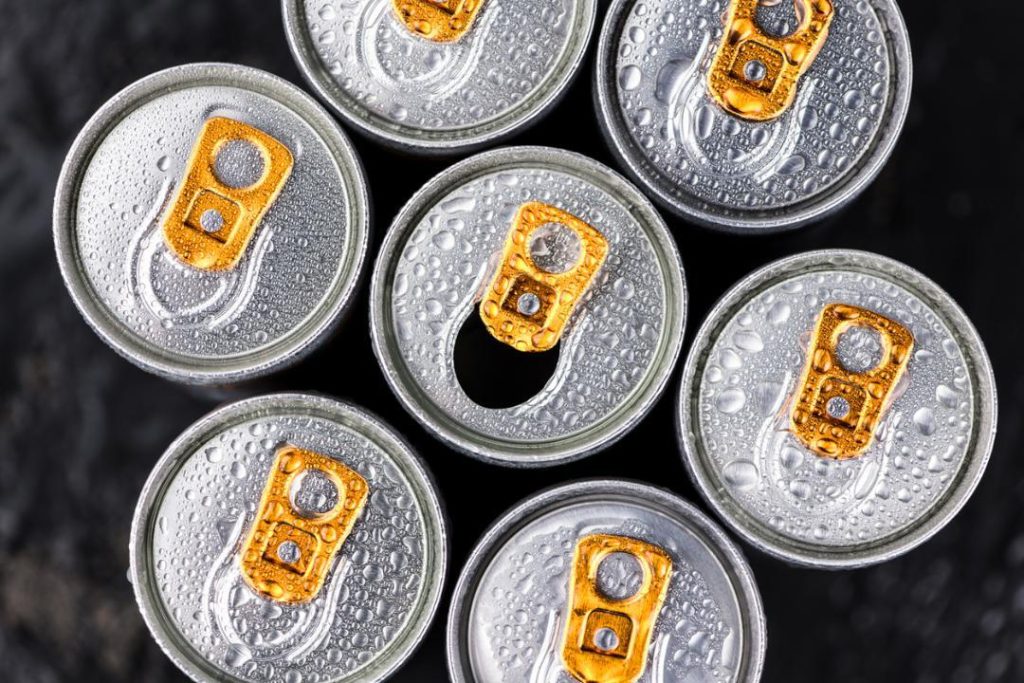
Common Energy Drink Ingredient Linked to Cancer Growth: Study
In a shocking revelation, a recent scientific study has found that taurine, a key ingredient in some energy drinks and protein powders, may have a dark side. According to the research, taurine plays a crucial role in the growth of myeloid cancers such as leukemia. This finding raises concerns about the safety of consuming taurine-rich products, especially among individuals who are already at risk of developing cancer.
Taurine is a naturally occurring amino acid that is often used as a dietary supplement. It is commonly found in energy drinks, protein powders, and some sports drinks. While taurine has been touted for its potential health benefits, including improving athletic performance and reducing oxidative stress, the new study suggests that it may have a negative impact on cancer growth.
The study, conducted by a team of researchers at the University of Rochester Medical Center, found that taurine promotes glycolysis, a breakdown of glucose to produce energy, in leukemia cells. This process allows cancer cells to feed on glucose and grow, making taurine a key regulator of myeloid cancer growth.
“We were surprised to find that taurine is a key player in the growth of leukemia cells,” said Dr. Xian-Jin Xie, a professor of pharmacology and physiology at the University of Rochester Medical Center and lead author of the study. “Taurine’s ability to promote glycolysis in leukemia cells makes it a potential target for the development of new cancer therapies.”
The study’s findings are significant because they suggest that taurine may play a role in the development and progression of myeloid cancers, such as acute myeloid leukemia (AML) and chronic myeloid leukemia (CML). AML is a type of cancer that affects the blood and bone marrow, and CML is a type of cancer that affects the blood cells.
The researchers used a combination of experiments and computational modeling to study the effects of taurine on leukemia cells. They found that taurine increases the expression of genes involved in glycolysis, which allows leukemia cells to produce more energy and grow faster.
Furthermore, the study found that taurine is taken up by leukemia cells through a specific transport system, which allows it to enter the cells and promote glycolysis. This process is thought to be the key mechanism by which taurine drives leukemia growth.
While the study’s findings are concerning, it’s important to note that taurine is not a guarantee of developing cancer. However, for individuals who are already at risk of developing cancer or have a family history of cancer, consuming taurine-rich products may increase their risk of developing myeloid cancers.
The study’s findings also have implications for the development of new cancer therapies. Taurine’s ability to promote glycolysis in leukemia cells makes it a potential target for the development of new cancer therapies that can inhibit glycolysis and prevent the growth of cancer cells.
In the past, taurine has been shown to be useful as a supplement in chemotherapy. However, the new study suggests that its role in promoting glycolysis in leukemia cells may make it a potential contributor to cancer growth.
In light of these findings, it’s important for individuals to be aware of the potential risks associated with consuming taurine-rich products. While taurine may have some potential health benefits, its impact on cancer growth is a concern that cannot be ignored.
Source:
https://www.urmc.rochester.edu/news/story/a-downside-of-taurine-it-drives-leukemia-growth






